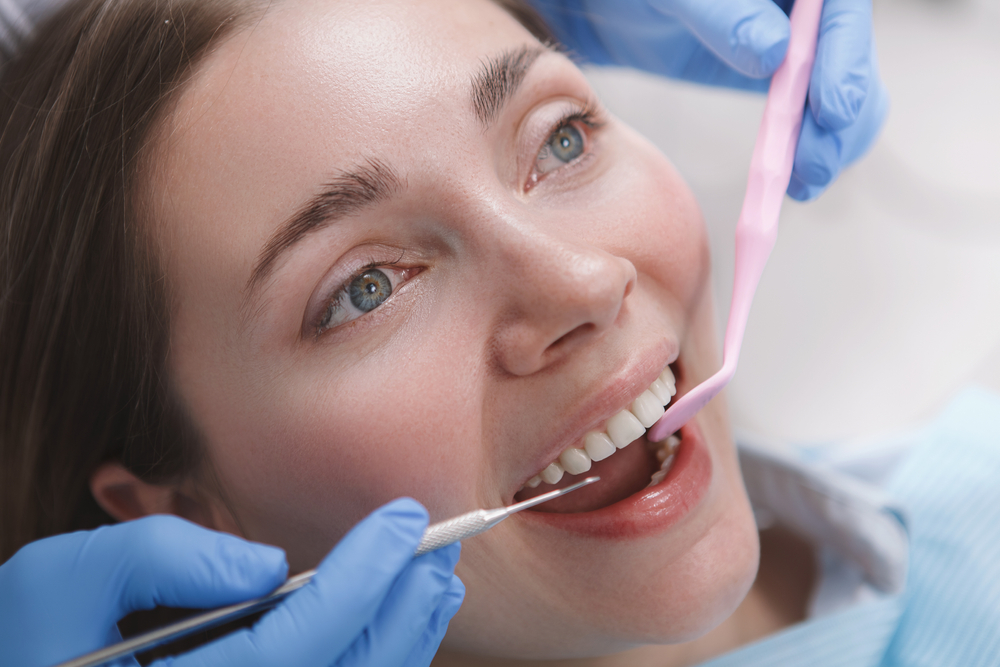Cavities are holes that form in the teeth as a result of tooth decay.
Cavities refer to holes that form in a decayed tooth. They usually start as small areas of damage and, if left untreated, become larger over time. In many cases, cavities don’t cause any symptoms in their early stages, so you may be completely unaware of the issue. For this reason, it is extremely important that you see your dentist for regular check-ups — cavities are a common issue and can lead to a range of more serious concerns if they are not addressed early. Read on to learn some facts about cavities that you may not know, and what you can do to keep tooth decay at bay…
1. The bacteria that cause cavities are transmissible
Cavities are caused by harmful bacteria in the mouth, and these bacteria are, unfortunately, transmissible from one person to another. In fact, children are often exposed to these bacteria at a very young age from a primary caregiver. This can occur as the result of kissing; sharing food, drinks and utensils; and other forms of saliva exchange. When these cavity-causing bacteria are introduced to the mouth, they can multiply and grow, causing damage to the teeth over time.
2. Sugar contributes to cavities
The harmful bacteria that cause cavities to develop use the sugar that you eat to produce what is known as lactic acid. Lactic acid damages the teeth by softening and eroding the enamel, wearing it away over time. If this acid is not neutralized or removed, the bacteria in the mouth will continue to produce acids, leading to further damage of the affected tooth, as well as the surrounding teeth.
3. Cavities affect your overall health
There is evidence to suggest that the bacteria that cause cavities can also have some other detrimental health implications. These bacteria reduce the body’s capacity to make enough Nitric Oxide, a substance that is essential for healthy blood vessels. They also contribute to the build-up of plaque in the arteries, and can increase one’s risk of other serious health issues, including heart attack and stroke.
4. Cavities can be prevented
The good news is that although cavities are a common concern, they can be prevented with the right care. One of the best things you can do to keep your mouth healthy in the long-term is to practice proper oral hygiene on a daily basis. Ideally, your routine should include brushing your teeth twice a day with a fluoride toothpaste and a soft-bristled toothbrush; and flossing at least once a day.
It is also advisable that you limit your consumption of sugary and acidic foods that can contribute the build-up of plaque and dental erosion. Foods and drinks to avoid include soda, candy and refined carbohydrates. You should also try to avoid frequent snacking between meals as much as possible.
You can reduce your risk of cavities by seeing your dentist for regular check-ups and cleans. When you see your dentist for an examination, they will look carefully for signs of cavities and provide you with any necessary treatment as soon as possible. Your dentist will also provide you with all the information that you need to improve your oral hygiene, and break the cycle of repeated damage, costly repairs and unnecessary pain caused by oral infection.
How can we help?
At Elite Dental of Staten Island, we encourage our patients to come in and see us for regular check-ups and cleans. When you come in for a check-up, you can expect a thorough cavity examination. If we identify any issues, we will recommend a treatment plan best suited to your needs.
We will also provide you with all the information you need to maintain proper oral hygiene habits for the sake of your oral and general health. If you have any questions about your oral hygiene routine and how it can be improved, please don’t hesitate to raise them with us.
To book an appointment, please contact us here or give us a call on (718) 370 1200.
